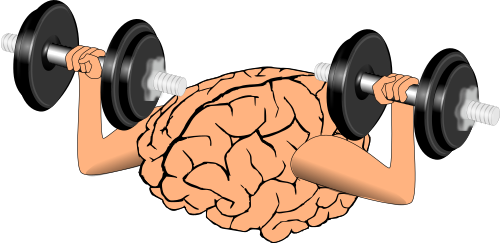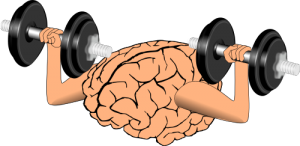Being an engineer and having some understanding of brain activity, I enjoy comparing brain to an electronic device.
Many complex electronic devices I work with have the following 3 elements: CPU to handle complex logic, GPU to analyse a lot of simple and repetitive information in a fast and parallel form and dedicated RTL circuitry to perform highly-specific and efficient computations. Roughly speaking, human brain has left hemisphere (language+sequential processing), right hemisphere (visual processing) and brain stem (motor and sensory functioning). So the basic elements are very similar. Now let us take the analogy one notch further.
Suppose we need to perform a recognition function, how will we handle it? Modern research claims that face recognition is distributed between many “computing elements”: the occipital lobe, the fusiform face area, the superior temporal sulcus, the amygdala, and the anterior/inferior cortex of the temporal lobe. If we take the computer analogy we would get by functional analogy an imaging unit, adaboost computation, motion detector, cache memory processing, and semi-supervised learning mechanism. Wait, the CPU-like frontal lobe is not mentioned here. Why? It is too busy making other high-level analysis to be bothered with something as simple as face recognition.
Now, what happened when we are reading? Science tells us that huge number of brain cells “light up”, to enable handling of complex information. In fact, the amount of brain activity required for reading a simple novel may improve brain functionality and fight alzheimer! The changes caused by reading a novel were registered in the left temporal cortex, an area of the brain associated with receptivity for language, as well as the the primary sensorimotor region of the brain. Neurons of the region have been associated with tricking the mind into thinking it is doing something it is not, a phenomenon known as grounded, or embodied cognition. [This would be a debug injection input for our computer chip.]
Once the brain is tricked into processing the content of the the book we read, it activates all the centres that would be activated had we found ourselves in a similar scenario to the one described in the book. This shadow activity lasts for days, with us having an improved brain capable of handling the situations in the book. In the computer analogy, we would upload plug-ins required for handling the situations within the book, and as a side-effect use the same plug-ins to process everything else we encounter.
So far we kind of discussed how reading books can improve our functioning, but how does our functioning improve reading books? This is a bit beyond the scope of today’s science. By using advanced visualization methods we create feedback further reinforcing the neural schemes: recognition and shadow activity. And you can still use the main “CPU” to analyse the content and create powerful “hyperlinks”.

Get 4 Free Sample Chapters of the Key To Study Book
Get access to advanced training, and a selection of free apps to train your reading speed and visual memory



Hi Dr. Lev,
It is an interesting article. My mainly concern is about the preventing of Alzheimer disease. I’m in my 30’s and it seems that some mind challenge activities like math study or other puzzle games or learning languages are not a definitive solution to fight against Alzheimer. E.g. please read about the mathematician Daniel Quillen, who died after some health complications because of the Alzheimer’s disease. Then what options do we really have? I am thinking that the mind activities like math should not be ignored but even more we should put a lot of attention to our psychological behavior like: be always optimist, be thankful to what life gives you. In few words we should: to do our best to avoid the depression. I would like to know your opinion about what I have wrote. Thank you!
I know it sounds silly, but coffee really helps. There are multiple studies supporting…
Also the level of immune system is important. This is based on new studies.
No guarantees though, it is a game of chances. Even if your chances are one in a billion you can get unlucky.
Thank you!